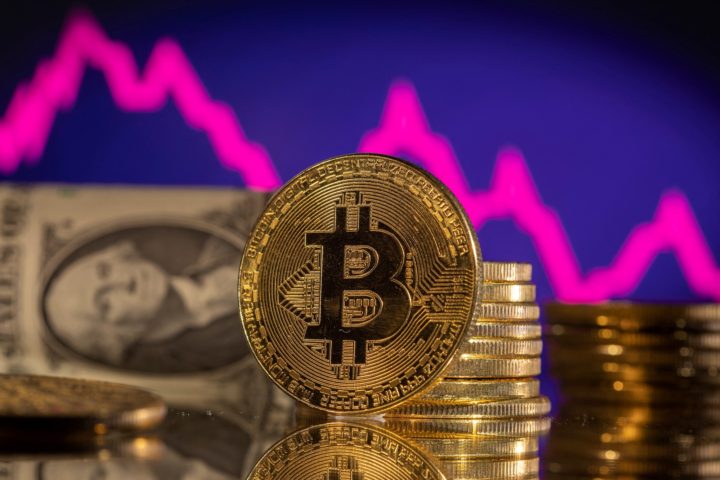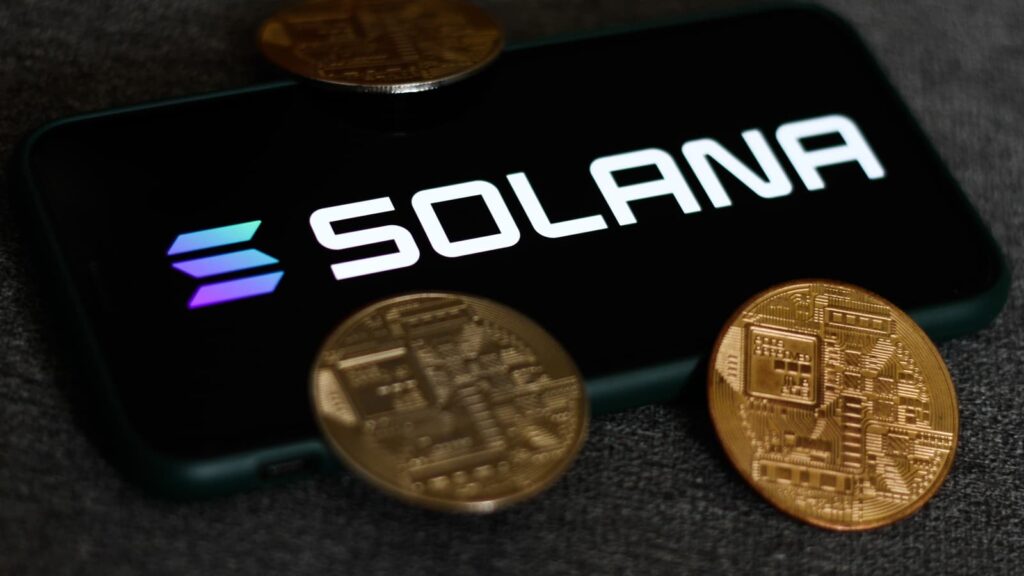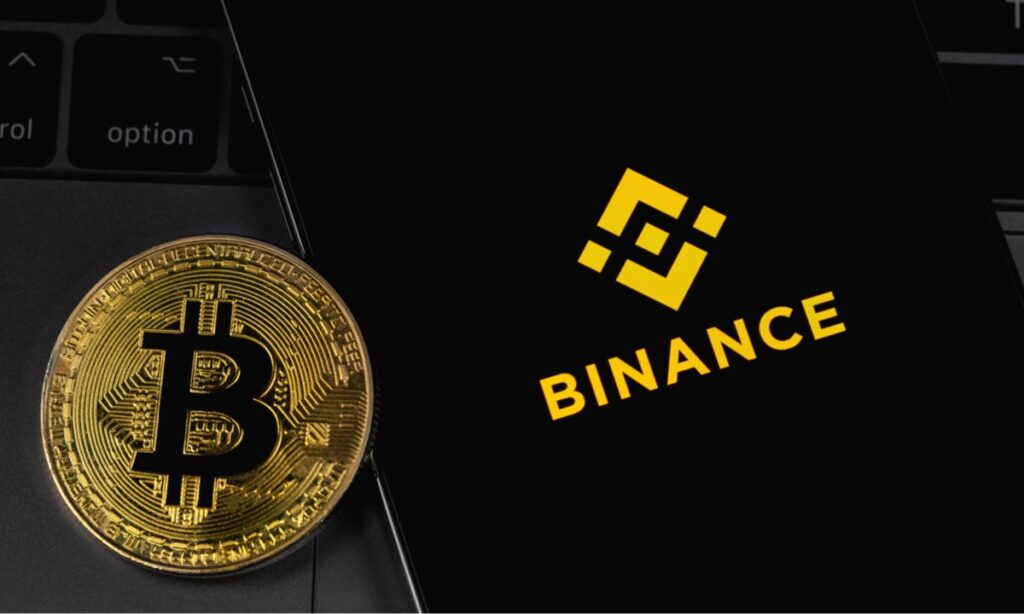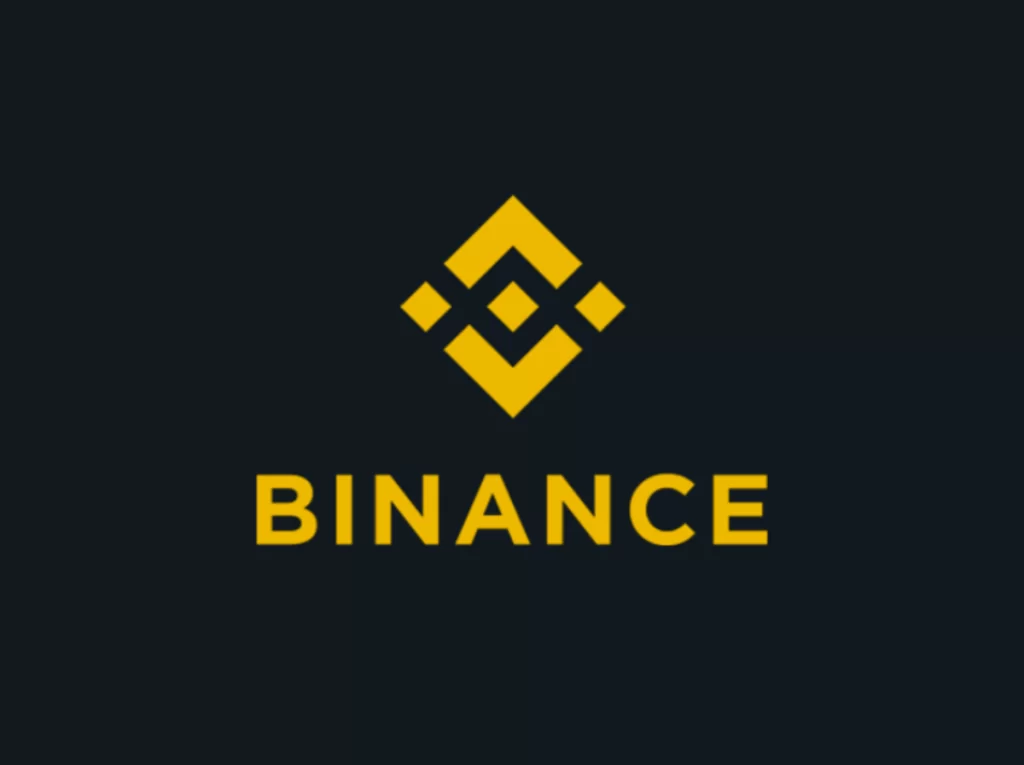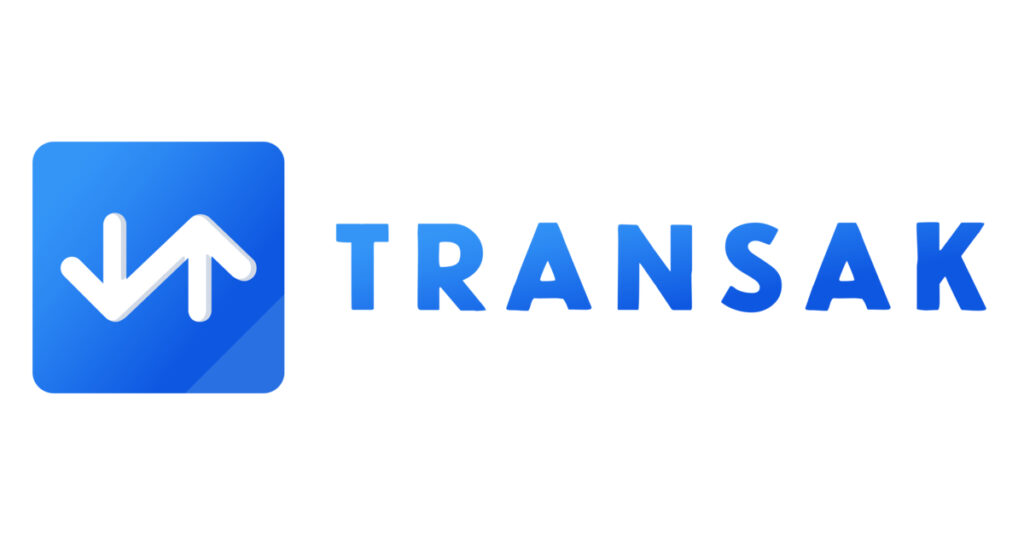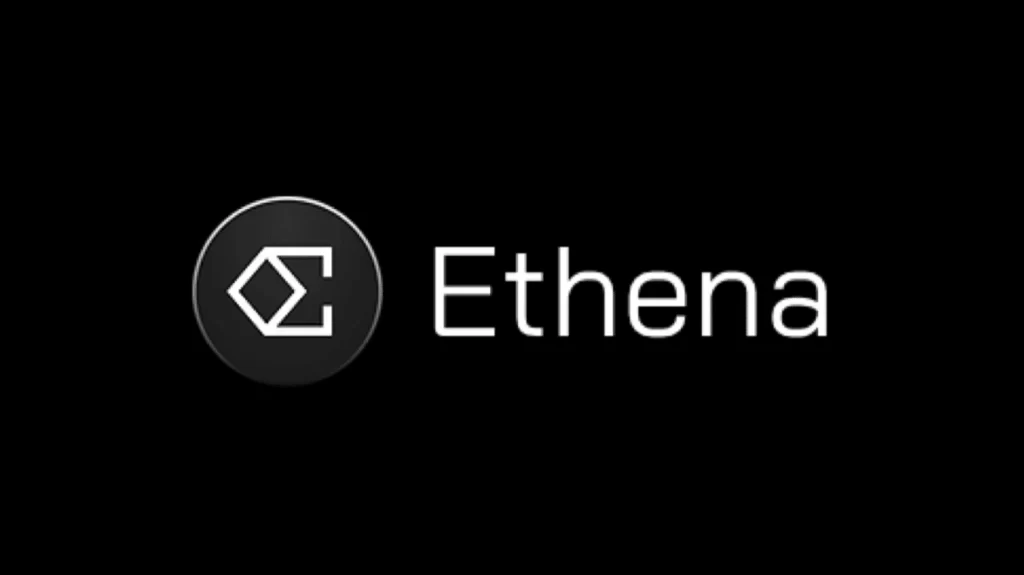In an astonishing twist of fate, a trader’s early exit from a memecoin investment on the Solana network resulted in missing out on nearly a million dollars in potential earnings.
Initially investing $8,000, the trader sold their stake in the frog-themed memecoin, Book of Meme (BOME), for $131,000—a substantial profit by any standard.
However, this decision came just one day before the token’s value soared, an opportunity flagged by blockchain analytics firm Lookonchain on March 14.
The firm highlighted the trade of “shatter.sol,” who had bought approximately 170 million BOME tokens with 50 SOL, only to sell them before a dramatic price increase.
According to CoinGecko, BOME’s value escalated from $0.00005848 to $0.005833 between March 14 and 15, propelling its market capitalization over $320 million.
Consequently, the tokens sold by “shatter.sol” would have been valued around $993,000 had the trader held on for just one more day.
This incident has divided opinions among the crypto community, with reactions ranging from considering it a missed opportunity for “generational wealth” to acknowledging the profit made.
READ MORE: Elizabeth Warren Faces Unprecedented Challenge from XRP Advocate in Upcoming Senate Race
Meanwhile, other traders have experienced significant success in the volatile memecoin market. Influencer Moataz Elsayed, known as “Eljaboom,” highlighted a case where an investment of 420.69 SOL (approximately $80,000) turned into $5.7 million within 48 hours.
This success story aligns with a presale investment claim by the anonymous trader “Sunday Funday,” who asserts to be the leading tokenholder of BOME.
The launch of the Book of Meme project by the pseudonymous art producer Darkfarms has drawn considerable attention, despite its experimental nature and the “weird allocation” during its presale.
Darkfarms expressed surprise at the level of participation in the memecoin’s early stages.
The broader Solana ecosystem has seen a resurgence of interest, particularly in November 2023, with an 80% increase in the value of its token.
This revival has sparked a frenzy around Solana memecoins, including Bonk, Dogwifhat, and Silly Dragon, which have all experienced significant gains, reflecting the unpredictable yet potentially lucrative nature of memecoin investments.
To submit a crypto press release (PR), send an email to sales@cryptointelligence.co.uk.
Grayscale‘s spot Bitcoin ETF, a pioneering financial product in the U.S. since its inception on January 11, has experienced a significant market share drop, marking the first time it has fallen below 50%.
According to Dune Analytics, as of March 12, the Grayscale Bitcoin Trust (GBTC) managed $28.5 billion, constituting 48.9% of the combined $56.7 billion in assets under management (AUM) across ten U.S. Bitcoin ETFs.
Initially, Grayscale dominated the market, with its fund representing approximately 99.5% of the total AUM of the first ten U.S. spot Bitcoin ETFs.
However, the landscape has shifted dramatically due to persistent daily withdrawals from GBTC, which averaged $329 million per day in the preceding week.
These outflows, particularly pronounced in the initial month post-launch, with $7 billion exiting the fund, have gradually decelerated.
Yet, a mid-February court decision enabling crypto lender Genesis to sell off approximately $1.3 billion in GBTC shares reignited the outflow trend. To date, GBTC has seen over $11 billion in outflows, as reported by Farside Bitcoin ETF flow data.
READ MORE: Grayscale Proposes New Bitcoin Mini Trust to Offer Tax-Efficient Investment Option
Grayscale’s fund transitioned from a trust to an ETF following a successful legal battle with the Securities and Exchange Commission (SEC) and subsequent approvals of other spot Bitcoin ETF applications.
This transformation allowed institutional investors engaged in GBTC arbitrage to permanently withdraw or reallocate their capital to other Bitcoin ETFs offering lower fees.
The market initially reacted negatively to GBTC’s outflows. However, optimism has been renewed by significant net inflows into other ETFs, such as BlackRock’s iShares Bitcoin ETF (IBIT) and the Fidelity Wise Origin Bitcoin Fund (FBTC), which have collectively attracted $16.9 billion in inflows since their launch.
Market analysts attribute the substantial inflows into these new ETFs as a key factor behind the recent surge in Bitcoin’s price, which hit a record high of $72,900 on March 11.
BlackRock’s ETF now holds over 200,000 BTC, valued at roughly $14.3 billion, underscoring the shifting dynamics within the cryptocurrency investment landscape.
To submit a crypto press release (PR), send an email to sales@cryptointelligence.co.uk.
In a notable development within the cryptocurrency market, a pseudonymous analyst known as Rekt Capital pointed out that the meme-based cryptocurrency FLOKI could be on the brink of a significant price increase.
Rekt Capital, sharing insights on the platform X, highlighted, “FLOKI is in the process of retesting its final major resistance as new support (black).
Successful retest would send #FLOKI to new highs. Needs to continue to hold here.
Retest is in progress.” This statement sets the stage for FLOKI’s potential market performance.
The analysis included details on FLOKI facing two pivotal resistance levels at $0.000021 and $0.0000625. In the realm of technical analysis, resistance levels are thresholds where the sell-off pressure surpasses buying interest, thus capping the asset’s price increase.
Breaking through a resistance level could transform it into a support level, indicating a strong buying interest that prevents further price declines.
Rekt Capital suggests that FLOKI has surpassed a significant price challenge and is now testing this boundary as a support level, potentially solidifying its position and preventing further declines.
The spotlight on FLOKI also comes at a time when the coin has engaged in significant token burning activities, effectively reducing its circulating supply.
READ MORE: Starknet to Harness Ethereum’s Dencun Upgrade for Major Fee Reductions and Enhanced Scalability
Recently, over $1 million worth of FLOKI tokens were burned, followed by another substantial burn amounting to $3.2 million.
This reduction in supply has been further supported by the FlokiFi Locker, a DeFi protocol that purchases and burns FLOKI tokens, aiding in the scarcity of the asset.
Additionally, data from Santiment, an analytics platform, indicates an increase in social dominance for Floki, hinting at a growing interest and potentially positive market sentiment towards the coin.
Another cryptocurrency analyst, Inmortal, also conveyed optimism about FLOKI’s future, drawing parallels to another meme coin’s success. Inmortal stated on X, “PEPE pumped.
FLOKI next. Muscle memory, contagion. Call it what you want, but it works.”
This sentiment underscores a broader belief in the meme coin’s market dynamics and potential for substantial gains.
At the time of the report, FLOKI’s trading value stood at $0.0002771, marking a 6.46% increase over the preceding 24 hours, signaling positive market movement for the meme cryptocurrency.
To submit a crypto press release (PR), send an email to sales@cryptointelligence.co.uk.
In a recent turn of events, despite Binance’s decision to withdraw its operations from Nigeria, two high-ranking officials from the cryptocurrency exchange remain detained in Abuja, Nigeria’s capital.
Tigran Gambaryan, the head of Binance’s criminal investigations team, and Nadeem Anjarwalla, the regional manager for Africa based in Kenya, have been held without their passports for two weeks, as of March 12, according to a report by Wired.
The detention of Gambaryan, a former U.S. federal agent with a focus on cryptocurrency, and Anjarwalla began on February 26, 2024.
Despite the lack of clarity on the presence of criminal charges, the families of both executives have expressed their concern and uncertainty about their loved ones’ wellbeing and future.
Yuki Gambaryan, Tigran’s wife, voiced her frustration, saying, “There’s no definite answer for anything: how he’s doing, what’s going to happen to him, when he’s coming back.”
A Binance spokesperson confirmed the ongoing detention of the executives in Nigeria and stated, “While it is inappropriate for us to comment on the substance of the claims at this time, we can say that we are working collaboratively with Nigerian authorities to bring Nadeem and Tigran back home safely to their families.” Emphasizing their professional integrity, the spokesperson expressed confidence in a prompt resolution.
READ MORE: Arbitrum to Release $2.32 Billion in Vested Tokens, Sparking Market Speculation
The backstory to their arrest follows an invitation from the Nigerian government to discuss a dispute over Binance’s operations in Nigeria, which were deemed unlawful by Nigerian authorities.
Gambaryan and Anjarwalla arrived in Abuja on February 25 to meet with officials and discuss the government’s blockade of Binance and other crypto exchanges, accused of contributing to the devaluation of Nigeria’s currency, the naira, and facilitating illicit financial flows.
However, following their initial meeting, the executives were escorted from their hotel to a guesthouse managed by Nigeria’s National Security Agency, where their passports were seized.
Since then, they have been held there against their will, allege their families.
Both Gambaryan and Anjarwalla have received visits from officials of the U.S. State Department and the U.K. Foreign Office, respectively, though their discussions were overseen by Nigerian government guards, restricting private conversation.
This incident unfolded shortly before Binance formally announced its exit from the Nigerian market on March 5, following a series of measures restricting its operations, including the suspension of naira withdrawals and the removal of trading pairs involving the naira, as part of its phased withdrawal strategy.
To submit a crypto press release (PR), send an email to sales@cryptointelligence.co.uk.
Starknet, a prominent Layer-2 scaling protocol, is set to enhance the benefits of reduced costs for rollups following the Dencun hard fork on Ethereum, scheduled for March 13.
The Starknet Foundation has unveiled plans for additional fee-reduction measures that will align with the Dencun upgrade, marking a significant evolution in Ethereum’s infrastructure since its transition to proof-of-stake in October 2022.
The Dencun upgrade, featuring the Ethereum Improvement Proposal (EIP-4844), is poised to revolutionize the way Ethereum rollups store data on the mainnet.
It introduces “blob space” as an alternative to the traditional use of call data for storage, addressing the high costs associated with the latter due to the perpetual on-chain processing requirement by all Ethereum nodes.
This new approach, known as proto-danksharding and inspired by its proposers, allows for more economical data storage in blocks without permanent accessibility or processing by the Ethereum Virtual Machine, with data automatically expiring after 18 days.
David Silverman, Vice President of Product at Polygon Labs, has emphasized the significant cost advantages and maintained security guarantees of this method for rollups.
READ MORE: Arbitrum to Release $2.32 Billion in Vested Tokens, Sparking Market Speculation
As Starknet anticipates immediate fee reductions, there may be initial delays as layer-2 solutions adjust their contracts to utilize the new blob space.
In line with the Dencun hard fork, Starknet is preparing to release version 0.13.1, transitioning from the costly call data method to blobs for data transactions, promising substantial fee savings, given call data’s dominant role in Starknet’s gas expenditures.
Ilia Volokh, a StarkWare product manager and blockchain researcher, explained that Starknet’s SHARP prover, responsible for transmitting state differences to Ethereum, will adopt blob space, leading to a prompt reflection of fee reductions post-Dencun’s launch.
Volokh highlighted the immediate impact on users, stating, “A byte of data will be priced in accordance with Ethereum’s blob prices.”
Further boosting Starknet’s efficiency, a new hash system to be introduced in early 2024 will enhance the protocol’s transaction capacity through improved proof bundling technology.
This development underscores Starknet’s commitment to leveraging Ethereum’s evolving ecosystem to deliver cost-effective, scalable solutions.
To submit a crypto press release (PR), send an email to sales@cryptointelligence.co.uk.
A prominent cryptocurrency analyst, known by the pseudonym Bluntz, has recently expressed optimism regarding the potential of a decentralized storage altcoin.
Bluntz, who boasts a following of nearly 240,000 on the social media platform X, highlighted the peer-to-peer file storage network Filecoin (FIL), suggesting it is primed for significant growth following a lengthy period of accumulation.
Bluntz remarked, “FIL is on the cusp of the most outrageous pump, two-year accumulation range almost cleared.”
He pointed out that FIL has surged past its diagonal resistance, setting it on a trajectory to surpass its multi-year high of $11.390.
At the moment of reporting, Filecoin was valued at $11.57, reflecting a notable 14% increase in just 24 hours.
Filecoin’s inception in October 2020 was met with enthusiasm, backed by major crypto venture firms, including Winklevoss Capital.
This venture capital firm, co-founded by Bitcoin billionaires Tyler and Cameron Winklevoss, who also established the cryptocurrency exchange Gemini, has played a significant role in Filecoin’s development.
Additionally, Bluntz reiterated his forecast for the Solana-based meme token dogwifhat (WIF), predicting a climb to $3.
READ MORE: Shiba Inu (SHIB) Token Sees Surge in Adoption, Poised for New All-Time High
He anticipates WIF will emulate the price trajectory of Nosana (NOS), a crowd-computing platform’s native asset. Bluntz shared, “Visual representation (below) of what I think happens.”
Furthermore, the analysis extends to Sei (SEI), a competitor to Solana, which Bluntz believes is on the brink of a fifth-wave surge, potentially reaching $1.40.
He enthusiastically stated, “Let the god candle commence.”
This prediction is grounded in the Elliott Wave theory, a method of technical analysis that forecasts future market movements by analyzing investor psychology and market cycles.
This theory suggests that a bullish asset will experience a five-wave surge before undergoing a three-wave correction.
Currently, SEI is trading at $0.904, experiencing a slight dip of more than 1% in the past day.
Bluntz’s insights reflect a deep understanding of market dynamics and the potential for specific cryptocurrencies to achieve significant gains, drawing on both technical analysis and the underlying strengths of the projects mentioned.
To submit a crypto press release (PR), send an email to sales@cryptointelligence.co.uk.
A recent decision by a United States appeals court has revived a class-action lawsuit by investors against the cryptocurrency exchange Binance, challenging a previous dismissal by a lower court.
The United States Court of Appeals for the Second Circuit, on March 8, ruled in favor of the investors, overturning the district court’s dismissal of claims related to transparency issues in Binance’s sale of what are alleged to be securities.
The appeals court found the district court’s reasons for dismissal flawed, stating, “We hold that each of the district court’s bases for dismissing Plaintiffs’ claims that are before us on appeal was erroneous.”
The lawsuit, initiated in April 2020 by Chase Williams on behalf of similarly situated investors, accused Binance of engaging in the sale of securities without proper registration as a securities exchange or broker-dealer.
The plaintiffs are seeking to nullify contracts with Binance and demand damages for what they claim is a violation of Section 12(a)(1) of the Securities Act of 1933.
This violation pertains to Binance’s promotion, offer, and sale of crypto-assets or “tokens” that were allegedly not registered as securities, with the district court previously ruling the lawsuit as untimely based on statutes of limitations.
READ MORE: BNB Hits Two-Year High Amid Market Optimism – What Price Target is Next?
However, the appeals court has sided with the plaintiffs, asserting that Binance falls under U.S. securities laws and that the lawsuit was filed within an appropriate timeframe.
This legal reversal arrives amidst Binance’s ongoing legal battles with U.S. authorities.
Notably, the U.S. Securities and Exchange Commission (SEC) has faced criticism for its handling of inquiries regarding the custody of customer assets.
In June 2023, the SEC initiated a lawsuit against Binance, Binance.US, and its founder, Changpeng “CZ” Zhao, for the alleged sale of unregistered securities and commingling of customer assets in a separate entity controlled by Zhao.
Binance settled with the U.S. Department of Justice in November 2023 for $4.3 billion over charges of money laundering and violating terrorism financing laws.
Zhao, having pleaded guilty to money laundering charges, is scheduled for sentencing in April.
To submit a crypto press release (PR), send an email to sales@cryptointelligence.co.uk.
The CEO of ARK Invest, Cathie Wood, has made a bold prediction regarding Bitcoin’s future, suggesting that the cryptocurrency will reach a value of $1 million much sooner than the initially forecasted year of 2030.
In an interview with the New Zealand Herald on March 7, Wood shared her insights, citing “new expectations for institutional involvement” as a key driver behind Bitcoin’s potential price surge.
Wood emphasized that the advent of the United States’ first spot exchange-traded funds (ETFs) has marked a significant transformation for Bitcoin.
Her confidence in Bitcoin’s future has only intensified, spurred by the momentum and interest surrounding these spot ETFs.
This has led ARK Invest to reassess its stance on Bitcoin, shifting its price target ahead of the previously predicted timeline.
According to Wood, the approval of spot ETFs by the Securities and Exchange Commission (SEC) was a pivotal milestone that has accelerated the cryptocurrency’s ascent toward the $1 million mark.
READ MORE: Consensys-Backed Transak Achieves System and Organization Controls (SOC) 2 Type 2 Compliance
Despite the enthusiasm, Wood pointed out that major financial institutions, such as Morgan Stanley, Merryl Lynch, or Bank of America, have yet to endorse Bitcoin.
However, she believes that the current price movement precedes their potential approval, suggesting that Bitcoin’s valuation could climb even higher once these platforms come on board.
Wood hinted that the revised target price for Bitcoin exceeds the $1 million mark, reflecting her optimistic outlook fueled by anticipated institutional participation, though she did not specify an exact figure.
As Bitcoin approaches new all-time highs, the market braces for a “wild week,” according to James Van Straten, a research and data analyst at CryptoSlate.
Traders and analysts anticipate continued price discovery, driven by ongoing ETF inflows.
Van Straten highlighted the critical moment if Bitcoin surpasses the $70,000 threshold before potential turbulence at Coinbase, the largest U.S. exchange.
This period is seen as crucial for determining Bitcoin’s true market value, especially after recent records saw BTC/USD trading at approximately $69,500.
To submit a crypto press release (PR), send an email to sales@cryptointelligence.co.uk.
Transak, a leading Web3 payment onboarding infrastructure provider supported by notable entities such as Consensys, UOB of Singapore, SBI Holdings, and Sygnum, has recently marked a significant achievement by obtaining SOC 2 Type 2 compliance.
This certification comes after an extensive and rigorous audit process, underscoring Transak’s commitment to the highest standards of data security, privacy, and trust for its customers. The firm’s accomplishment sets a new precedent in the crypto space, establishing it as the first crypto on- and off-ramp infrastructure provider worldwide to meet this level of compliance.
SOC 2 Type 2 compliance is critically important for providers handling sensitive personal and financial information, necessitating adherence to the strictest global regulatory requirements to mitigate cyber risks and maintain user trust.
This certification is crucial for fostering collaborations between Web2 companies and the emerging Web3 sector. Historically, hesitation from established organizations to enter Web3 has been noted, primarily due to concerns over compliance and security standards.
However, Transak’s compliance achievement now enables partnerships with some of the largest and most stringently regulated companies across various industries, including technology, cloud services, finance, and healthcare.
This milestone not only enhances Transak’s reputation but also serves to improve the overall image of the Web3 industry as compliant and secure, encouraging other startups to follow suit. The SOC 2 Type 2 audit required a thorough examination of Transak’s technology platforms, processes, policies, and controls, ensuring they adhere to rigorous global standards for data privacy and protection.
Further bolstering its commitment to security, Transak also recently achieved ISO/IEC 27001:2022 certification, indicating the highest compliance level for information security management systems.
This, along with SOC 2 Type 2 compliance, reassures partners in both Web2 and Web3 spaces of Transak’s enterprise-grade security measures, such as 256-bit SSL encryption and advanced identity verification protocols.
Transak’s CEO, Sami Start, highlighted the significance of this compliance, reflecting the company’s dedication to safeguarding customer data. Since its inception in 2019, Transak has prioritized data security, privacy, and transparency, facilitating the smooth transition from traditional finance to digital assets. Through its API, decentralized applications can integrate Transak’s platform, enabling users in over 160 countries to buy and sell digital assets like Crypto and NFTs, while simplifying KYC, risk monitoring, and compliance processes. This achievement reinforces Transak’s position as a secure and compliant bridge to Web3, with numerous licenses and certifications across the U.S., U.K., India, Poland, and the EU.
Ethena has emerged as a leader in the decentralized application (DApp) space, setting a remarkable milestone with over $6.8 million in daily cumulative revenue in the past week, as revealed by Seraphim Czecker, the Head of Growth at Ethena Labs, on a March 8 X post.
This achievement places Ethena just behind the blockchains Tron and Ethereum, which recorded daily revenues of $38.6 million and $182.5 million respectively over the same period.
The platform is gaining attention for offering a significant 67.2% yield on its USDe synthetic dollar, attracting over 350,000 users.
The value of USDe has seen a substantial increase, with its market cap surging by 43% in the last week and an impressive 409% over the past month, reaching $840 million according to data from DefiLlama.
Ethena Labs introduced its USDe synthetic dollar to the public mainnet on February 19, amidst concerns from investors given its high 27.6% annual percentage yield (APY) — considerably higher than rates previously seen in the industry.
This launch came after the notable collapse of the TerraUSD (UST) algorithmic stablecoin and its associated Anchor Protocol, which had offered a 20% yield before its downfall in May 2022.
READ MORE: Candy Token Crashes Over 87% Following $2.9 Million Rug Pull from Lena Network
Addressing concerns about the high yield of USDe, Guy Young, the founder of Ethena Labs, in a Cointelegraph interview on February 22, highlighted the industry’s evolution post-Terra’s collapse.
Young emphasized the importance of skepticism and due diligence, stating, “The immediate reference to Terra Luna was just a knee-jerk reaction which people had to the yield itself […] It’s right that people responded in the way that they have because we should be responding with skepticism and trying to work out whether [protocols] are fragile in the beginning rather than letting them get too big if they are.”
He further differentiated USDe from the failed Anchor protocol by pointing out that USDe’s yield generation mechanisms, including staking returns and shorting Ether perpetual future contracts, are publicly verifiable.
The development of Ethena’s synthetic dollar has been supported by substantial funding, with a recent $14 million investment round backed by Dragonfly.
This followed an earlier $6 million investment round in 2023, featuring prominent backers such as Binance Labs, Gemini, Bybit, Mirana Ventures, OKX Ventures, and Deribit, showcasing strong investor confidence in the platform’s potential and innovation in the decentralized finance (DeFi) space.

